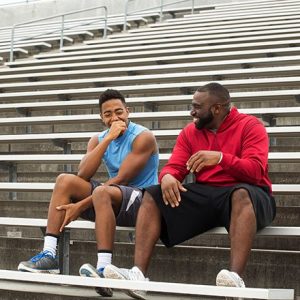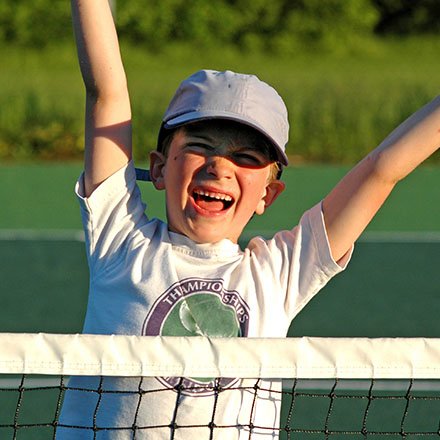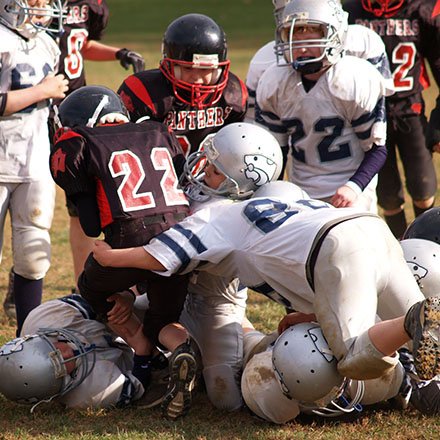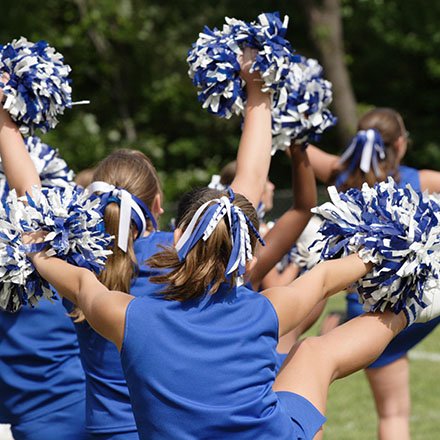Readying Your Athlete for the Big Game: How Parents Can Help Off the Field
by Cristiane Carraffa Chiacchio
Youth sports are a family affair, with parents and guardians devoting hours to shuttling children and teens to games, matches and meets and cheering from the sidelines. Parents also play key roles in ensuring their children and teens are well prepared to make the upcoming competition a safe, healthy and positive experience – and this preparation starts well before game day. Here are some tips to help ensure your young player is in top form.
Make rest a priority. In order to be properly prepared both mentally and physically, children and teens need plenty of rest, on a regular basis and especially on the nights leading up to a big game or tournament. Competitions can last many hours, over several days, and be exhilarating and exhausting at the same time. Help your child avoid those late-night video games or social activities before a competition.
Hydrate, hydrate, hydrate. Whether the game is indoors or out, in a hot climate or cold, proper hydration is critical. This means drinking plenty of water not just on game day but during the days leading up to a competition. If an athlete arrives at a competition dehydrated, it’s too late to undo the damage. And remember, they don’t have to feel thirsty to need more hydration. Urine color can be a good barometer, with lighter colored or clear urine indicative of proper hydration, darker urine a sign that dehydration may be setting in.
Pack wisely – and early. Days before an event ensure that all equipment and gear are ready, in good working order and hasn’t been outgrown. Packing up the day before will also reduce last- minute stress caused by the inevitable missing shin guard. Be sure to consider any ‘extras” that might be needed based on weather reports and competition locale. Pack rain gear, sunscreen, and bug repellent as needed.
Fuel with healthy food. Be sure your athlete is energized and ready with healthy pregame meals, including dinner the night before and breakfast the day of an event. Have them carry along healthy snacks – such as bananas, apples and nuts — that are easily digestible and can help keep energy up. And while it may be convenient to stop for fast food during a busy tournament
weekend, try to avoid processed food and look for healthy venues for lunch breaks and team dinners along the way.
Check in on safety. Ask what type of first aid is available at the competition venue. Are there emergency vehicles and athletic trainers on hand? If so, where? Also, be aware of your team’s emergency action plans and protocols. If your team brings along its own first aid kit, work with team managers to be sure it’s properly stocked. All team paperwork, including medical and health insurance information, should be up to date.
Watch the weights. While the training regime is the coach’s job, many teens are involved in workouts and weight training outside of their team events. When this is the case, they should work closely with their coaches to ensure they are appropriately ‘stepping down’ these efforts before key competitions.
Help your athlete visualize success. Taking some mindful moments to visual optimal athletic performance can help athletes at all levels be mentally prepared to perform at their best. Encourage your young athletes to practice visualization and positive self-talk that can not only help reduce the stress of an important game but will help set them up for success.

Initiate goal setting. Help your child or teen set goals for athletic endeavors at the team and individual level and encourage them to share these with their coach. Goals are a great motivator; setting and working toward goals is an important life skill.
Leave plenty of time. Nothing ramps up game-day stress like missing warm-up due to a traffic jam. Leave extra time and your athlete can arrive relaxed – even allowing some extra time for stretching or socializing.
With forethought and preparation, your athlete will be well prepared for a healthy and successful sporting event, whatever the final score. And you can all enjoy the thrill of athletics, while making memories that will last a lifetime.
Cristiane Carraffa Chiacchio is America’s Head of Personal Accident at AIG. AIG’s Accident & Health Specialty Markets Division is a leading provider of customized Accident & Health solutions for youth sports teams.
For information about the accident & health insurance solutions the AIG companies offer for amateur sports organizations, recreational organizations, and educational institutions, visit https://www.aig.com/business/insurance/group-accident/specialty-solutions




